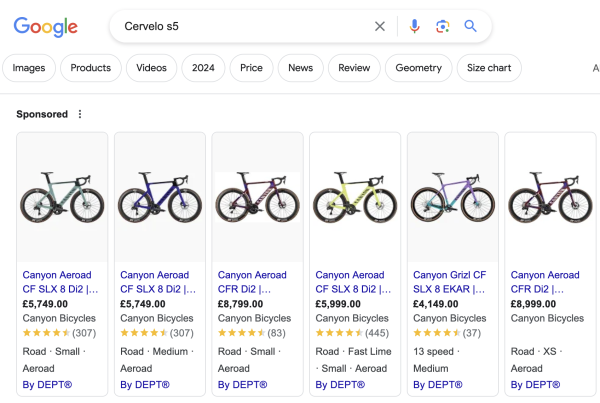In the fast-paced world of e-commerce, expanding into international markets offers new growth opportunities but also comes with unique challenges. It requires a thorough understanding of diverse cultural, linguistic, and regulatory landscapes that differ significantly from your domestic market.
Therefore, a meticulous approach to market research and a deep dive into local consumer behaviours and preferences are required. Here, we’ll explore the top challenges that potentially undermine your international e-commerce Google ads strategy.
Market Research for International Google Ads: The Bedrock Of International E-Commerce Success
An in-depth understanding of the new market is the cornerstone of any successful international Ad strategy. Some e-commerce brands entering new markets need to avoid assuming buyers will have the exact same pain points, values and behaviours as those at home.
Cultural Considerations for International PPC Campaigns
Every market has its cultural fabric that influences consumer behaviour and shopping habits. For example, what appeals to your buyers at home may not resonate with those in another country due to differing values, traditions and lifestyles. This can shape everything from what products people buy to their preferred online experience.
Recognising these nuances allows you to tailor your Google ads campaigns in a way that speaks directly to your target audience, making your brand not just seen but understood and appreciated.
International Shipping Considerations for E-commerce
An often overlooked aspect of international e-commerce is the logistical landscape, especially shipping restrictions and practices. For example, door-to-door delivery may be more complex in some regions than in your home market. Therefore, the shopping experience will be very different.
Awareness of these logistical nuances will allow you to adapt your strategy and align messaging to enhance customer experience and expectations. This will, in turn, reduce cart abandons and improve brand loyalty.
Know Your Competition
A thorough investigation of local competitors will reveal the challenges you are up against and opportunities, such as gaps in the market that your brand may fill. Assuming the same USPs that work at home may not cut it against your overseas competitors.
Identifying USPs that resonate with the local audience will set you apart and give consumers a compelling reason to choose your brand over others. This competitive intelligence will also form the bedrock of your keyword and ad copy strategies, ensuring you are visible and compellingly relevant to your target audience.
Expanding your e-commerce brand internationally requires a deep dive into the heart of each market you wish to enter, backed by data-driven insights and a keen understanding of local nuances.
Website and Landing Page Experience: Website Localisation Best Practices for E-commerce
Your website and landing pages must resonate with local expectations. As the first point at which your international customers encounter your brand, localised experiences can significantly enhance user engagement, conversion rates, and overall brand perception.
E-commerce Website Translation vs Localisation
A key point here is that this goes beyond mere translation. It's about creating an experience that feels native to each market. For instance, in their post, Ecommerce Localization, Shopify highlights the importance of localising currencies, which, although are a requirement for international shopping ads, can boost conversion rates by as much as 40% due to the reduced friction in the purchasing process.
A Seamless Global Experince
A well-localised website effectively targets new regions and offers a superior user experience. Again, assuming your home website layout and navigation will meet the needs internationally can result in a poor return on advertising spend. Layouts, payment, shipping options, and copy should be adapted to the local dialect, ensuring the website resonates with your audience's needs and preferences. Failing to do this will make competing with regional competitors meeting these needs more challenging.
Understanding and implementing local preferences into your website is more than a strategy. It’s a necessity. By investing in professional translation and cultural adaptation, your brand can reach across borders by offering a seamless and engaging experience that addresses local issues and pain points and communicates with your localised USPs.
International Google Ads Campaign Structure Best Practices
Success in International Google Ads campaigns can heavily rely on their structure and targeting. A one-size-fits-all approach fails to address the needs of global markets.
Structured for Success
The need to craft separate campaigns for each geographic location and language cannot be overstated. This kind of segmentation allows for precise control over budgeting, bidding strategies, targeting options, and fine-tuning to ensure the best efficiency.
Localisation of Keywords for International PPC
Again, touching on localised messaging, ad copy can be tailored to meet the needs of your audience. Professional translation in line with your campaign structure and segmentation will better resonate with your local audience on a cultural level. This will also help avoid potential misunderstandings or offences arising from direct translations.

This goes beyond ad copy and into your keyword strategy, ensuring that the correct ads appear in the proper language for the search query buyers use, thereby maintaining consistency in language.
Social Proof and Consumer Trust: Amplify Your E-Commerce Influence
Establishing trust and credibility with potential consumers, especially in new markets, is paramount. This is where social proof can become a game-changer for your e-commerce brand.
The Power of Reviews and Ratings
Reviews and ratings are a cornerstone of social proof in e-commerce, and platforms like Amazon underscore their importance. It is routine for shoppers to seek out what others have said before purchasing. Incorporating this into your product pages and ads enhances credibility and significantly influences buying decisions.

Leverage User Generated Content
UGC, including posts, images and videos created by your customers, acts as compelling social proof. This offers the most influential and authentic content to feature on your website and social platforms. Reviews left by happy customers can also provide valuable insights into the value they get from your brand and can offer inspiration for new products and messaging.
Embrace Third-Party Review Platforms
While native reviews on your platform are valuable, leveraging third-party review platforms can add more credibility. Platforms integrating into Google Ads can also lift credibility sooner in the buyer's journey with product ratings featured in ads.
Integrating social proof throughout your e-commerce platform is essential in building trust and credibility, particularly in new markets. You can create a more relatable and trustworthy brand image that resonates with international customers by showcasing reviews, UGC, and leveraging third-party review platforms.
Technological and Monetary Considerations for International E-commerce Expansion
When entering international markets, e-commerce retailers must navigate a complex landscape of technological and monetary considerations that can significantly impact success if only partially addressed.
Technological Infrastructure
A robust technology infrastructure is pivotal for maintaining the performance of e-commerce ad campaigns. Issues such as slow-loading pages due to an inadequate hosting solution or outdated tech stacks can lead to a poor user experience, negatively affecting conversion rates. Further complications can arise in;
- - Inaccurate product availability
- - Incorrect shipping charges/services
- - Poor navigation/user experience
- - Non localised content
- - Non-relevant offers / messaging
A scalable tech stack will offer flexibility to adapt to the rapid pace of e-commerce growth and the demands of global markets.
Monetary Considerations
Presenting products in the correct monetary denominations is crucial to avoid confusing international customers and reducing friction. An efficient tech stack should support multi-currency transactions and adapt to the local pricing formats, ensuring a localised shopping experience. Payment processing solutions should accommodate various payment methods preferred in different regions, enhancing customer convenience and trust.
Aside from this, customs and tax considerations, such as the EU's Import One Stop Shop (IOSS), are also critical factors. E-commerce platforms must be capable of handling different tax regulations and customs duties applicable in various countries to ensure compliance and smooth cross-border transactions. This helps build trust with international customers and avoids legal and logistical complications arising from non-compliance.
The choice of e-commerce technology and attention to monetary details play a significant role in determining the success of an international e-commerce venture.
Strategic Flexibility and Innovation
Each market presents its unique challenges, from consumer preferences to competitive dynamics. Hence, businesses must remain agile, continuously refining their strategies based on local market insights. This might involve tailoring product offerings to meet local tastes, adjusting pricing strategies to reflect market conditions, or innovating promotional tactics to cut through regional competition.
Navigating the complexities of international Google Ads campaigns demands a holistic and nuanced approach. From the outset, thorough market research lays the foundation, offering valuable insights into target markets' cultural, linguistic, and regulatory landscapes. This research informs culturally sensitive ad creatives and campaign messaging, ensuring resonance with local audiences.
FAQs Abount International PPC
What is international PPC advertising?
International PPC advertising targets a global audience using search engine marketing, displaying ads based on user searches in various countries.
How is international PPC different from domestic PPC?
International PPC differs from domestic PPC by requiring adaptations to local languages, cultural nuances, and consumer behaviours, often resulting in varied costs and strategies.
What does an international PPC agency do?
An international PPC agency specialises in creating, managing, and optimising these global campaigns, ensuring they resonate with diverse audiences and comply with local regulations, leveraging in-depth market insights and cultural expertise.
